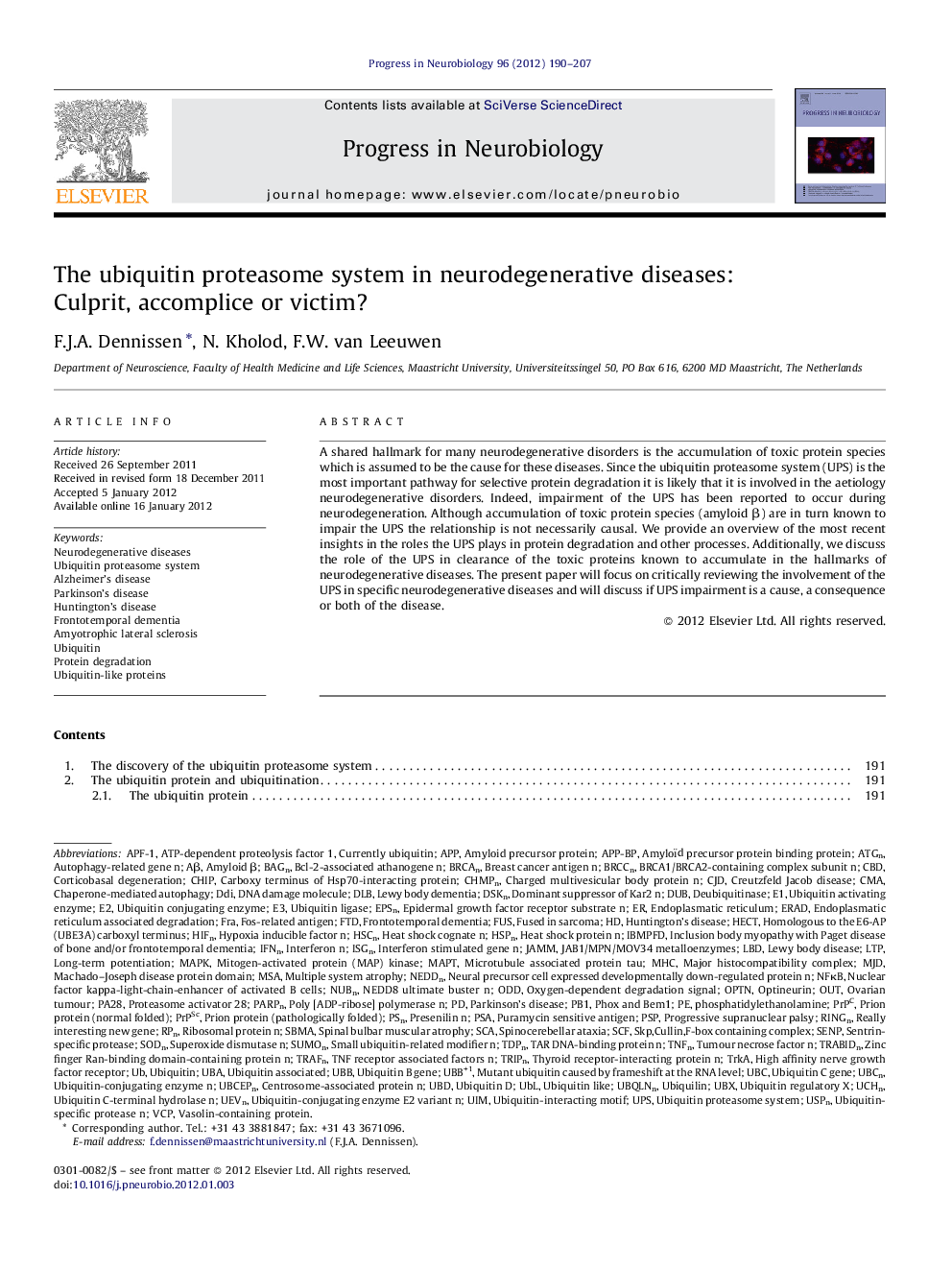| Article ID | Journal | Published Year | Pages | File Type |
|---|---|---|---|---|
| 4353428 | Progress in Neurobiology | 2012 | 18 Pages |
A shared hallmark for many neurodegenerative disorders is the accumulation of toxic protein species which is assumed to be the cause for these diseases. Since the ubiquitin proteasome system (UPS) is the most important pathway for selective protein degradation it is likely that it is involved in the aetiology neurodegenerative disorders. Indeed, impairment of the UPS has been reported to occur during neurodegeneration. Although accumulation of toxic protein species (amyloid β) are in turn known to impair the UPS the relationship is not necessarily causal. We provide an overview of the most recent insights in the roles the UPS plays in protein degradation and other processes. Additionally, we discuss the role of the UPS in clearance of the toxic proteins known to accumulate in the hallmarks of neurodegenerative diseases. The present paper will focus on critically reviewing the involvement of the UPS in specific neurodegenerative diseases and will discuss if UPS impairment is a cause, a consequence or both of the disease.
► Up to date view on the UPS and its relation to neurodegeneration. ► Discussion on ubiquitin-like proteins, proteasome function, and autophagy is included. ► Degradation pathways for the toxic proteins which accumulate in neurodegenerative diseases.
